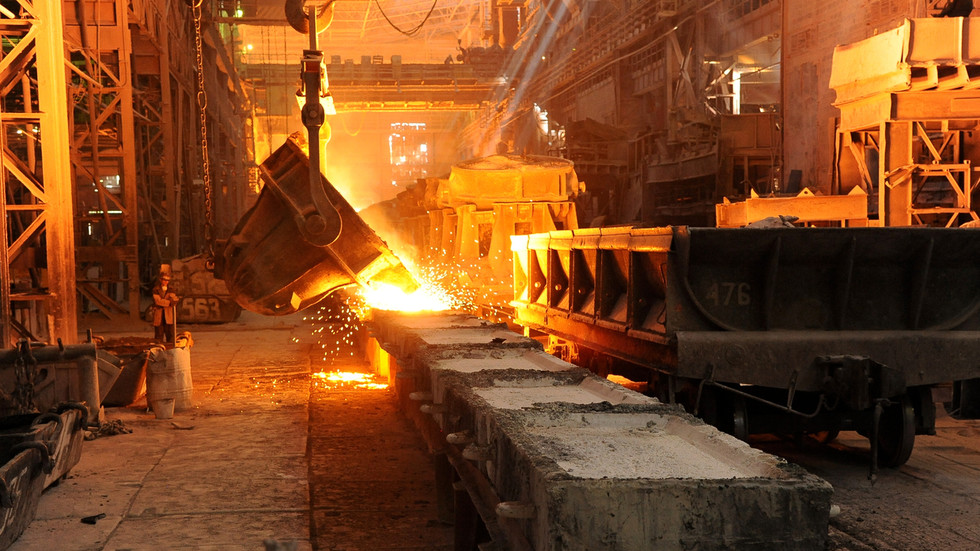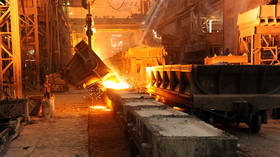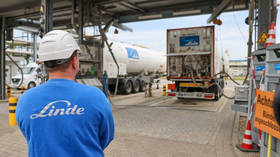
Three of Yury Antipov’s factories have been seized over a privatization controversy

File photo: Pouring ferroalloy at the Chelyabinsk Electrometallurgical Plant. © Sputnik/Aleksandr Kondratuk
Police in Russia’s Chelyabinsk Region arrested Yury Antipov on Monday, after a regional court seized three of his companies due to alleged irregularities with their privatization in the 1990s. Antipov was included on the latest Forbes list of Russian billionaires.
Antipov’s arrest was first reported by the local outlet 74.ru, citing a source in one of his companies, the Chelyabinsk electro-metallurgy combine (ChEMK). It was unclear what charges he was facing, however.
Earlier in the day, a court in Sverdlovsk Region ordered the transfer of ChEMK, Kuznetsk Ferroalloys and the Serov Ferroalloy Plant back to state ownership, after ruling that they were illegally privatized following the dissolution of the Soviet Union.
Antipov and his wife Lyudmila ended up controlling the largest Russian producer of iron alloys and electrodes through their joint stock company Etalon. The Russian Prosecutor General’s Office filed a case against the couple on February 5. A day later, the three enterprises had their assets frozen pending the outcome of the case.

Read more
The Chelyabinsk, Kuznetsk and Serov factories had been part of the Ural-Siberian Metallurgical Company (USMK), a joint venture between Antipov and another Chelyabinsk businessman, Aleksandr Aristov. Antipov ended up with them in the 2020 division of assets, while USMK itself was folded into Etalon last June.
As of late September 2023, Etalon’s assets were estimated at 34.6 billion rubles ($376.5 million). Yury Antipov owned 4.6 million shares of Etalon, while another 13.4 million belonged to his wife Lyudmila.
ChEMK attorneys have argued that Etalon’s factories were a key supplier of ferroalloys to the Russian market and an “example of proper strategic import substitution,” so their repossession by the state would be “irrational.”
Chelyabinsk Governor Aleksey Texler announced last week that the production of electrodes at ChEMK would cease by March 1, accusing the company of being a major polluter.
“It will be necessary to design and build a new, environmentally friendly and safe production facility outside the city,” the governor said at the time.




